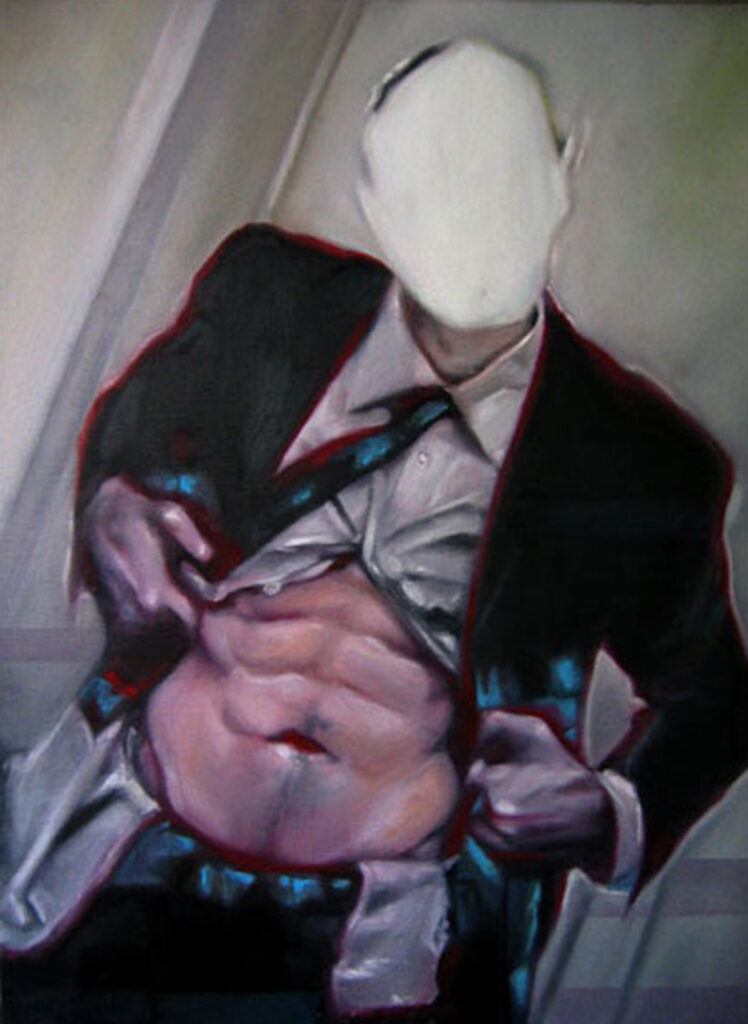No way out by Mathieu Riboulet, mach 2016
On Michel Bayetto’s E-jizz series
The orifice where being plunges is not the one we think it is. Not always, at any rate. It’s a case of a gaze that’s been diverted.
Pornography puts the eye where it doesn’t usually go, even though it’s obviously where it’s just dying to go. And the more it goes there, the more disappointed it is, and the more disappointed it is, the more it wants to go there yet again.
In the pornographic mass we have produced, which is as inexhaustible as we are inexhausted, there are men the fag psyche is mad about, men it hunts down and whose blood it sucks. They are there in front of us, and they’re often big masses of flesh, flesh we’d prefer hard, that we get hard, sumptuous, velvety masses that unfurl with pomp.
That’s what we want to see, this unfurling of flesh, this fan that, by lowering the neck of a shirt or the belt of a pant, by rolling out the hips, will grip us by the throat and leave us shaking.
That’s what we want, to shake with emotion at so much conquered flesh, to hope once again to reach erasure, to grasp the precise point where everything will disappear. The orifice. Not the one that rejects, relieves, or evacuates but the one we’d like to slide into forever.
So we do it, we do just that, we go see. And in the fever of dissatisfaction we see, and we seek again, and once again we see, and we seek and we see so well and so much and in so many ways that in the end here we are, sometimes soaked, still unsatisfied, and very often blind.
It is difficult for us to say we didn’t see anything when our eyes are filled with promising marvels, when our pupils have been dazed from having to reflect so many gleaming torsos, generous thighs, and brutal sexes.
But we haven’t seen anything yet because our gaze got lost. Broken, did it dissolve? Did it lose its soul? Or did it get sent back to itself, does it have no path to take other than the one that sends it back only to itself: seeing no longer to know, to love, to tremble, or before touching, but seeing just to see?
If so then it is no longer in the over-abundance of thighs, the charming imperfection of a leaning torso, or the sudden clarity of a dick getting grabbed that we get lost, but in the impossible satisfaction of what gives the gaze its tension and blindfolds it like a bow all the more saturated with strength and tension because it has lost its target.
The orifice where we end up disappearing will perhaps have the opacity of a pond, and perhaps we’ll end up seeing something in it, for a very short while, after having seen nothing at all throughout our long days. Perhaps then the blur, the sometimes opaque and sometimes pale circle that the paint lays over faces here as a way of marking their absence, will flake into dancing shadows and we will be able to grasp, no longer just these members, however sumptuous they may be even if scattered, stolen away, and always to be regained, but a whole unified by a human gaze, something like a body.
Translated by Will Bishop

